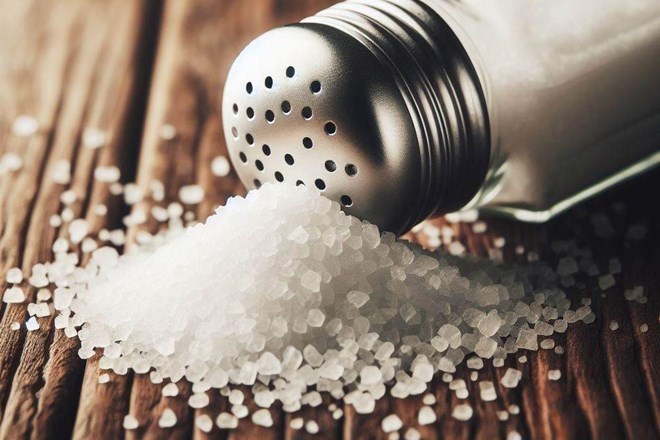
High salt consumption can lead to eczema
A recent study by the University of California, San Francisco (UCSF) and the University of California, Berkeley, found a significant correlation between a high-salt diet and the development of atopic dermatitis, commonly known as eczema. This condition causes dry, itchy skin.
Research shows that just one extra gram of sodium per day (1,000 milligrams) — about half a teaspoon of salt — is linked to an 11 percent higher risk of developing severe eczema.
“This study demonstrates that salt or sodium is stored in the skin, which may help explain the link to inflammatory problems in eczema,” said Katrina Abuabara, associate professor of epidemiology at UCSF.
Although reducing salt in the diet has not been shown to improve eczema, most Americans eat too much salt and can safely reduce their salt intake to recommended levels, says Katrina Abuabara.
“Eczema is a chronic systemic inflammatory condition characterized by itchy rashes that tend to appear on the skin and then disappear over time,” says Katrina Abuabara.
Because sodium is stored in the skin, it may also influence certain autoimmune skin conditions, Aluabara said. In the study, researchers examined urine samples collected over a 24-hour period from nearly 11,000 participants, about 5 percent of whom had been diagnosed with eczema.
The average urinary sodium excretion of participants was about 3 grams per day. But for every 1 gram increase in sodium excretion, a person’s odds of developing eczema increased. According to the study’s calculations, each additional gram of sodium was associated with an 11 percent increase in eczema diagnoses and an 11 percent increase in eczema severity, Abuabara said.
Diet to Control Eczema
Associate Professor of Epidemiology Katrina Abuabara recommends keeping your salt (or sodium) intake below 2,300 milligrams (mg) per day. Easy ways to start controlling your salt intake include focusing on whole foods like fresh fruits, vegetables, whole grains, nuts, seeds, legumes, lean meats and seafood, while staying away from overly processed foods and classic high-sodium culprits like salty snacks, condiments and deli meats.
While following this diet cannot cure eczema, ensuring that we are providing our bodies with nutrients to support skin health and reduce inflammation (such as protein, omega-3 fatty acids, and vitamins A and C) and controlling our weight can help prevent eczema, keeping our skin from becoming dry and itchy.
Source: https://laodong.vn/dinh-duong-am-thuc/thoi-quen-an-man-lam-tang-nguy-co-kho-da-va-gay-ngua-nhu-the-nao-1356894.ldo


































































































Comment (0)